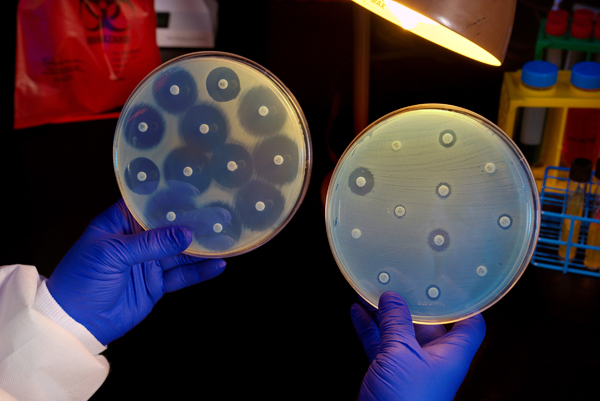
What may be saving you may also kill you in the process.
Antibiotics Resistance (AR): this term refers to when microorganisms (bacteria, fungi, viruses, parasites) change or evolve in order to survive in an environment where they are constantly exposed to antibiotic drugs. AR is basically what it sounds like: imagine getting an inflection, going to the doctor, and being prescribed antibiotics—but the medicine does nothing. Naturally, this raises some panic: what if bacteria become resistant to all drugs? Does the human race stand a chance?
Why does AR happen? I don’t even take that much medicine. Does this mean I’m going to die? These might be some thoughts floating around in your head. The answer is that you both should and should not panic.
Antibiotic resistance can occur naturally due to genetic evolution. When the resistance against bacteria increases, the bacteria evolve to compete in the difficult environment. However, the situation has worsened since antibiotics are often overused and misused in people and animals. For example, antibiotics are often given to animals at meat production farms to prevent diseases from spreading in small and crowded areas. Once people discovered that these drugs also work as growth promoters, they started giving animals drugs to make them grow faster and bigger. From eating these animals, humans’ bodies acquire antimicrobial resistant microbes, which effectively neutralizes the effects of some antibiotics they consume.
AR is an increasingly serious threat to global public health that needs more public awareness and measures to be taken by governments and society. Antibiotics resistance can compromise the success of major surgeries and cancer recovery while increasing the cost of effective treatments.
Unfortunately, you can’t really hide from antibiotic resistance unless you live on an isolated island in the middle of nowhere. Currently, scientists and doctors are constantly trying to develop medicine to combat the stronger bacteria. We can hope for the best and take some safety precautions. First, wash your hands because it removes the bacteria from your hands. Less bacteria means less probability of getting sick and needing medication. Second, prepare food safely, especially meat. Lastly and most importantly, finish your antibiotic treatment/course. Just because you feel better, don’t stop taking medication because the strongest bacteria stays till the end. If you get sick again from the same bacteria, you can’t take the same medicine.
Despite this legitimate concern, antibiotics are a relatively positive thing. They’re the reason humans’ health can’t be compromised by small things like paper cuts anymore.
Content in this article was taken in part from Mr. Seiple’s IB Chemistry (Y2) course. For more information, go to the World Health Organization and Green Facts.